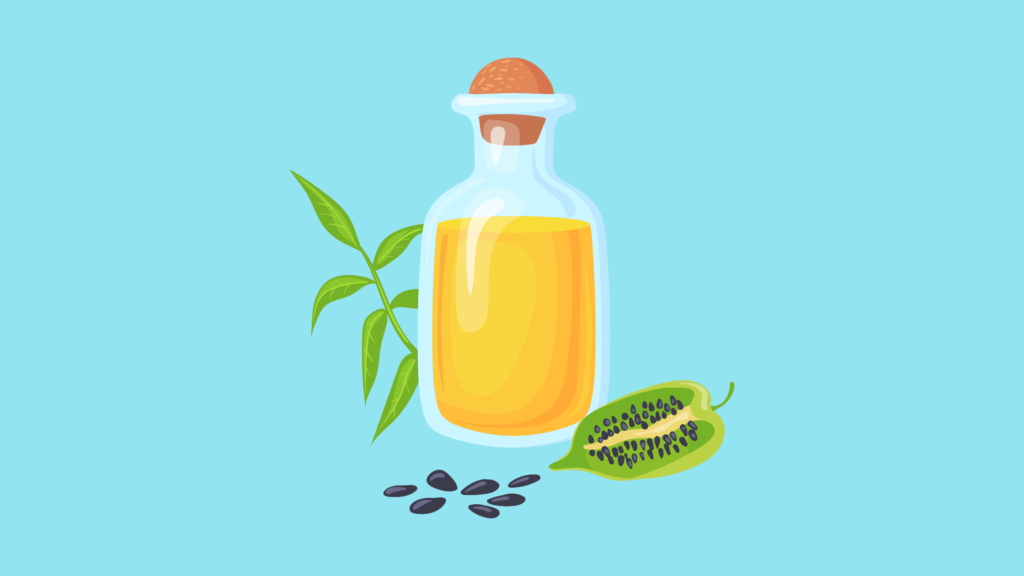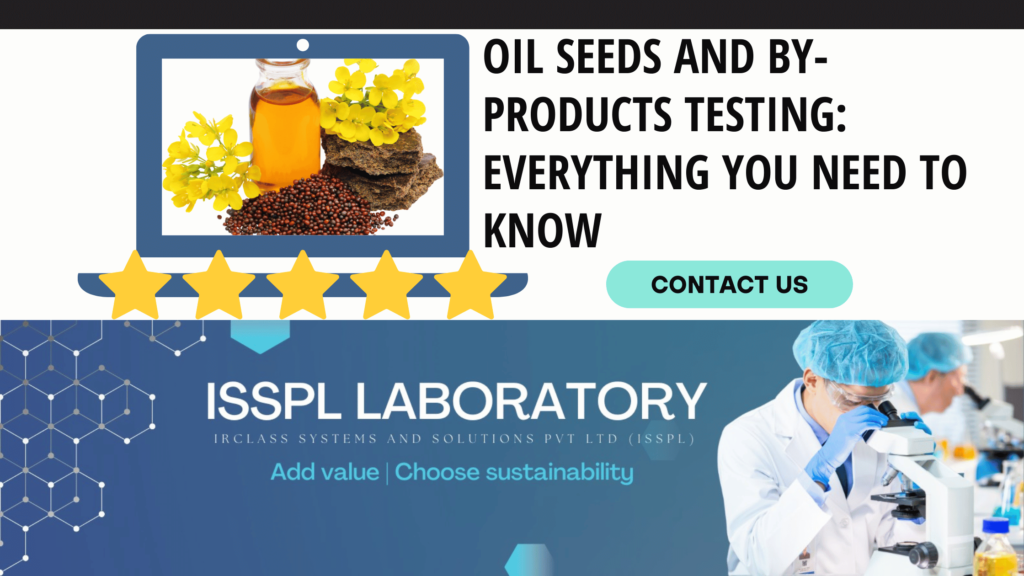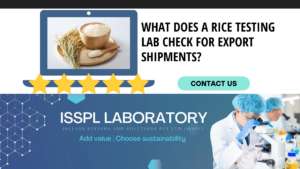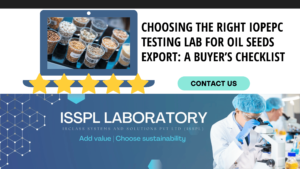An Overview by Team ISSPL - Analytical Testing Laboratory in India
ToggleOil seeds power much more than just cooking oils. From edible oils and protein-rich meals to cosmetics, animal feed, and industrial lubricants, oil seeds and their by-products play a pivotal role across multiple industries.
But while the potential is vast, so is the need for control and quality. That golden bottle of oil or protein-rich animal feed you see? It started as a seed—and everything depends on how that seed was tested, processed, and verified.
In this blog, we’ll break down why testing oil seeds and their by-products is critical, what needs to be tested, and how it protects your products, your consumers, and your brand.
Why Testing Oil Seeds Is a Must
Some of the biological materials that are used in oil production include soybeans, mustard, sunflower, groundnut, sesame, flax, and so on. That is why their quality can be high or low depending on such parameters as:
- Soil conditions
- Climate and rainfall
- Harvest timing
- Storage and transport conditions
These factors can influence the yield of oil, the fatty acid profile, the likelihood of contamination, and the shelf life of the product. If you are involved in the processing or trading of oil seeds without analyzing them first, then you are guessing.
Testing replaces guesswork with knowledge.
The Real Risk of Skipping Testing
For instance, if you are a processor in the market for sunflower seeds for processing in large quantities, this implies that without testing, one cannot identify early signs of fungal contamination. That fungus? It is producing aflatoxins, which are toxic compounds that are not visible but are very hazardous.
It may be that you are exporting oilcake for animal feed. It looks good, but it has high levels of residual solvents because it has not been processed well. That is a very risky position—and one that could result in export bans or product recalls for you.
What Should Be Tested?
When considering every batch of oil seeds and by-products, there are several factors that should be taken into consideration. The exact set depends on the end use, but it may contain:
- Moisture content: Excessive moisture is detrimental as it leads to spoilage and growth of fungi.
- Oil content: This is a measure of the commercial value of the seed since it is one of the most important products derived from the seed.
- Protein levels: The protein levels are important in feed and meal quality.
- Free fatty acids (FFA): Indicates degradation of oils.
- Pesticide residues: Especially important for export.
- Aflatoxins: Contaminants that should be detected as early as possible.
- Metal and solvent residues: Especially in processed by-products such as cakes or meals.
All these factors affect not only the safety of the products but also the profitability of the products.
Know Your By-Products Too
Not only the oil seeds are valuable but also the residues which are left after the extraction of oil from the seeds.
Oilseed cakes, meals, hulls, and lecithins are used in animal feed, biofuel, cosmetics, and soaps among others. These need to be tested to achieve the following goals:
- Nutritional quality
- Absence of toxins or contaminants
- Compliance with domestic and export regulations
- Shelf-life and packaging integrity
For instance, groundnut cake is used as a protein supplement in animal feed, but if it contains aflatoxins, it is poisonous to animals and humans as well.

Testing Supports Better Pricing and Trade
Testing of products and services is one of the key factors that support better pricing and trade since it assists in the determination of the quality of the products and services that are to be traded in the market.
In the commodities business, trust is the most important factor.
In trading oil seeds or meals, it is necessary to provide third-party test reports to the buyers. It also helps in the solving of problems that may be related to quality and price. It is only fair that everyone gets a true figure of the oil content percentage or protein level.
Buyers today are data-driven. A COA is not just a piece of paper; it is a competitive advantage.
Domestic and Export Compliance
The oil seed industry of India is closely linked with the international markets. For domestic sales and exports, it is compulsory to adhere to FSSAI, APEDA, BIS, and other standards.
Many countries have established maximum residue limits for pesticides, aflatoxins, and heavy metals. If the shipment is not tested, it can be rejected, and this will result in a lot of losses and a damaged reputation.
Testing can be seen as your passport to safe and effective cross-border business.
Myths Around “Natural” Oils and Seeds
It is quite reasonable to assume that if a product is natural or cold-pressed, it does not need to be tested. That’s a dangerous myth.
Natural oils are still susceptible to:
- Rancidity
- Fungal contamination
- Pesticide residues
- Heavy metals that are absorbed from the soil
Even organic products need verification. Instead, they require more testing to regain their certification and customers’ trust.
What’s the Ideal Testing Process?
It is always better to approach a professional lab in order to get the results as quickly as possible and with high accuracy. A good testing partner will help you in the following ways:
- Choose the tests based on the type of product
- Ensure sampling methods are standardized
- Provide fast services and easy-to-understand reports
- Stay ahead of regulatory updates
- Prepare for audits and certifications
It is not just about having a lab; you need a team that understands your product and the market you are operating in.
Summary: Why You Should Never Skip Testing
Are you still in a dilemma whether testing is worth the time and the money that is spent on it? So, let’s sum up what it actually offers to your business:
- It helps in safety and purity of oil seeds and by-products
- Enhances quality control in processing and storage
- Protects against contamination and spoilage
- Supports fair pricing and buyer confidence
- Compliance with domestic and international standards
In the current market, testing is not an option if you are to sell your oil-based products in the market.
Looking for a Testing Company
At ISSPL Lab, we provide various tests on oil seeds and their products and other related products. Our team of analytical specialists and food chemists offer a full spectrum of analytical services for safety, quality, nutritional, and regulatory compliance for your products and markets.
Whether you are in the edible oil industry, animal feed industry, or seed export business, ISSPL Lab helps in ensuring that your products are of the highest quality – every single batch.







